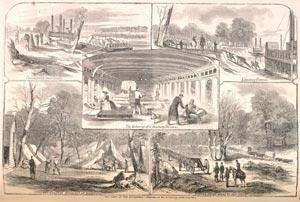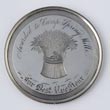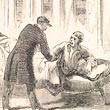The Civil War in Missouri
Save ThisMy CollectionJames Yeatman

Interior of a Sanitary Steamer (Download 2.7 MB PDF)
Highlights
- James Yeatman was born on August 27, 1818, in Bedford County, Tennessee.
- He was an industrialist and founder of the Merchants’ Bank. However, it was his contributions to the community that are his most lasting legacy.
- He founded the Mercantile Library in 1846, and helped establish it in the original building at Fourth and Locust streets. He served as the library’s first president.
- In the 1850s Yeatman was inspired by a teacher of the blind named Eli W. Whelan to found the Missouri Institute for the Education of the Blind. In 1853, along with Dr. William Greenleaf Eliot, he founded Washington University in St. Louis.
- A patron of art and music, Yeatman founded and became president in 1859 of the St. Louis Philharmonic Society. He then founded a Provident Association to integrate the city’s charities. He made it a policy to investigate people to determine whether they should receive relief.
Civil War
Highlights
- During the Missouri secession crisis Yeatman and other city leaders met with the mayor and decided that General Nathaniel Lyon was endangering the city and state with his actions at Camp Jackson. They chose Yeatman to send to Washington in order to convince Pres. Lincoln to remove Lyon—a task in which he was unsuccessful.
- Yeatman was an ardent Unionist. During the Civil War he helped to found and became president of the Western Sanitary Commission. The commission established hospitals around the region and raised money to provide care to wounded soldiers.
- In 1862, Yeatman again headed to Washington to speak to Lincoln. This time he was advocating the banishment of Rev. Samuel McPheeters of the Pine Street Church in St. Louis for his Southern sympathies. Yeatman was more successful this time as Lincoln upheld McPheeters’s banishment, but cautioned that the U.S. government should not take over and run any churches.
Death
Highlights
- After the war, Yeatman served on the first board of the St. Louis Children’s Hospital and of Bellefontaine Cemetery, where he was buried in 1901 after his death from exhaustion.
Primary Sources

Mississippi Valley Sanitary Fair Prize Medal (Download 788 KB PDF)

Interior of a Sanitary Steamer (Download 2.7 MB PDF)
Topics